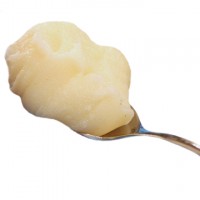A Marketing Campaign to Trump Them All

No news is good news. So naturally there’s a lot of news about Donald Trump.
That’s hardly noteworthy — this hurricane of chutzpah has been scoring headlines for decades. What’s remarkable now is how strongly his campaign for the Presidency is resonating with the public, and what that says about the power of marketing.
His quest seemed, at least initially, to be merely a self-promotion scheme, more about refreshing his own brand, making it, rather than the country, “great again.” And this dealmaker extraordinaire has, shrewdly, done it on the cheap. Why bother with a super PAC when you’ve got eager media companies footing the bill?
Trump is a past master at this game. “One thing I’ve learned about the press is that they’re always hungry for a good story, and the more sensational the better,” Trump said in “The Art of the Deal,” the ghostwritten bestseller that first brought him to national attention. “The point is that if you are a little different, or a little outrageous, or if you do things that are bold or controversial, the press is going to write about you.”
Trump takes pride in manipulating more than just the media. “I play to people’s fantasies,” his book states. “People may not always think big themselves, but they can still get very excited by those who do… People want to believe that something is the biggest and the greatest and the most spectacular.”
Spewing insults and making wild, unsupported assertions may demand immediate attention, but did Trump really start his campaign thinking he could govern this way, should he make it to the end? Perhaps he thinks he can simply disavow his incendiary statements later and repackage himself. Certainly social media has eroded the absolute power of corporate media and has allowed any of us to market our own truth. But it seems almost delusional to think that life operates like an advertising campaign where reality is whatever you say it is. After all, the democratization of media works both ways — it’s both freeing and confining; we can’t escape our past deeds and words.
In the meantime, Trump has been able to market himself as toughness personified, the avatar of politically incorrect truths: No-More-Mr.-Nice-Guy Goes to Washington. His followers don’t demand details about how exactly he would deliver on his promises.
If it’s surprising how well this has played, it shouldn’t be. Trumpism is a force because our political marketplace has been warped by years of extreme legislative obstructionism and cynical encouragement of conspiratorial irrationality (“birtherism” or science denial, anyone?) that have left much of the electorate bitter, marginalized, and looking for a strongman fixer who pretends to be as an angry as they are. The mistrusted insiders — the establishment of corporatists, legislators, pundits, moralizers, and donors — can’t control the populist fury they helped stoke. And opportunists, smelling a good deal for themselves, will seek to reap the benefit.


























